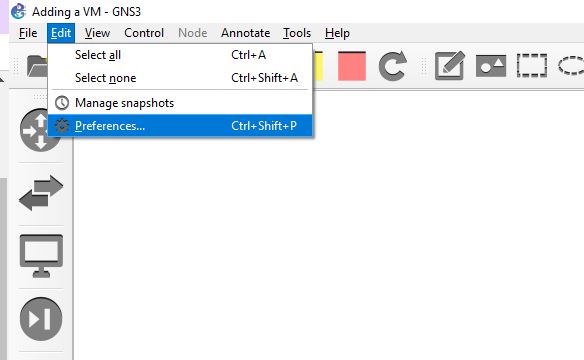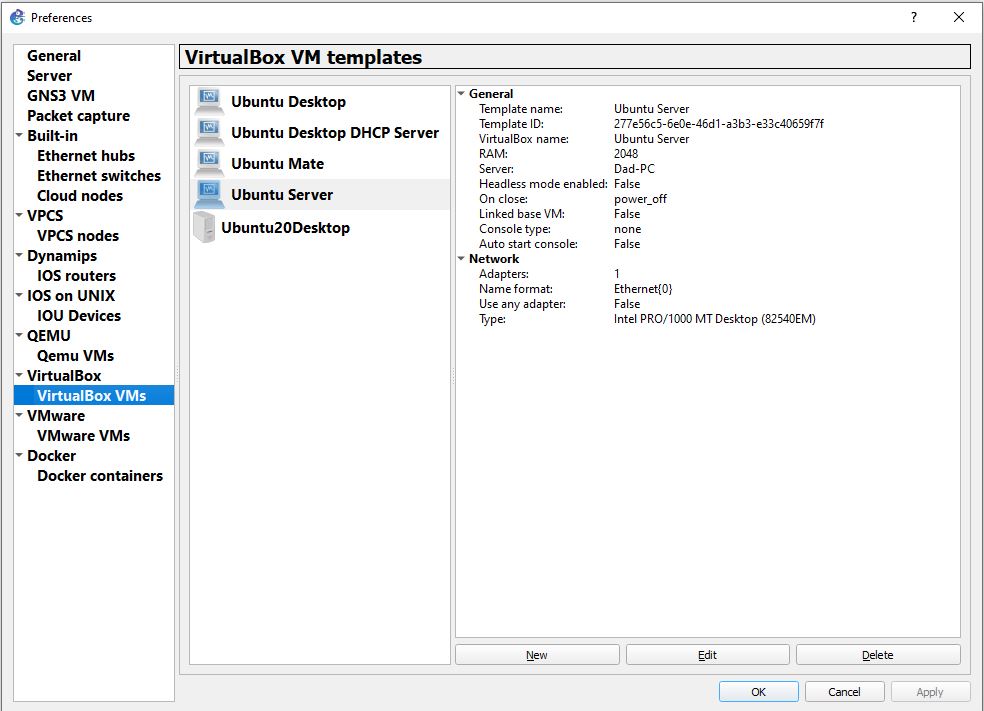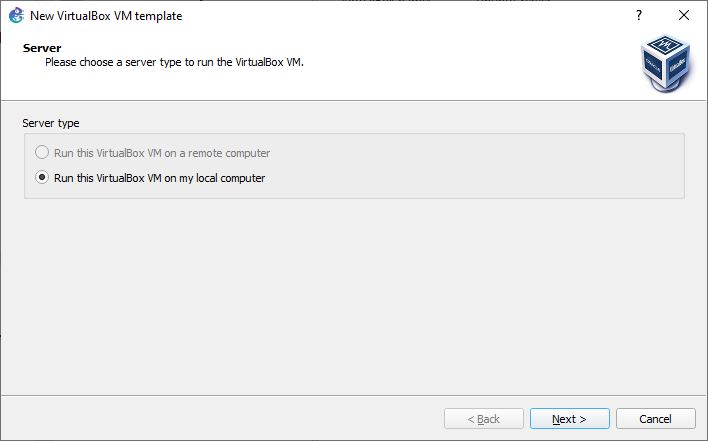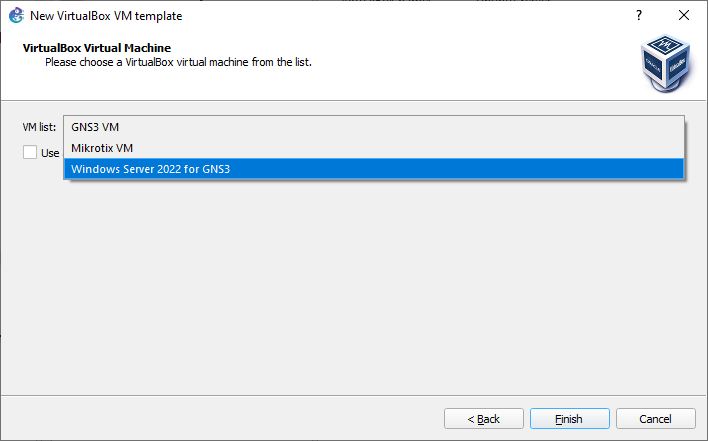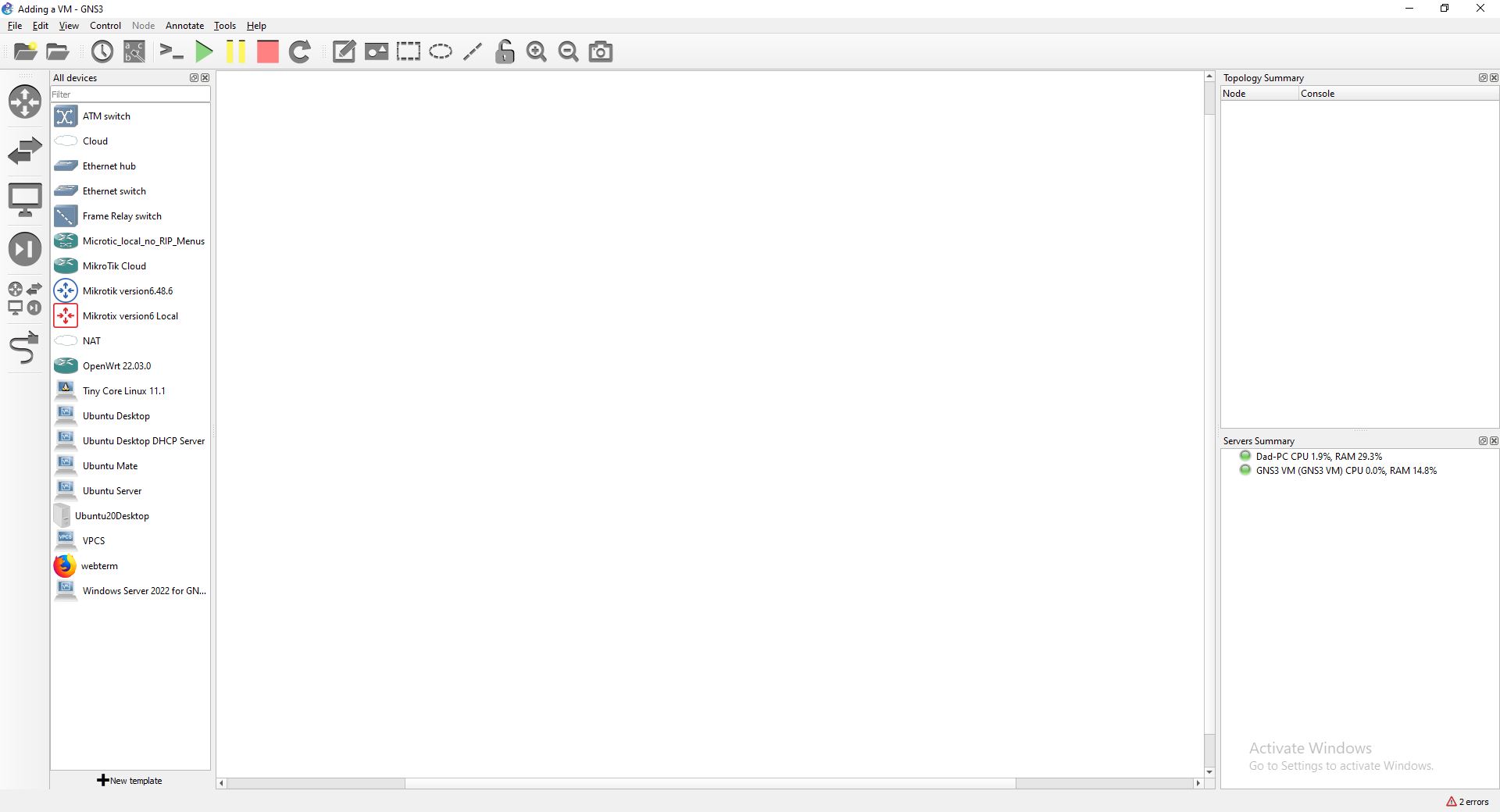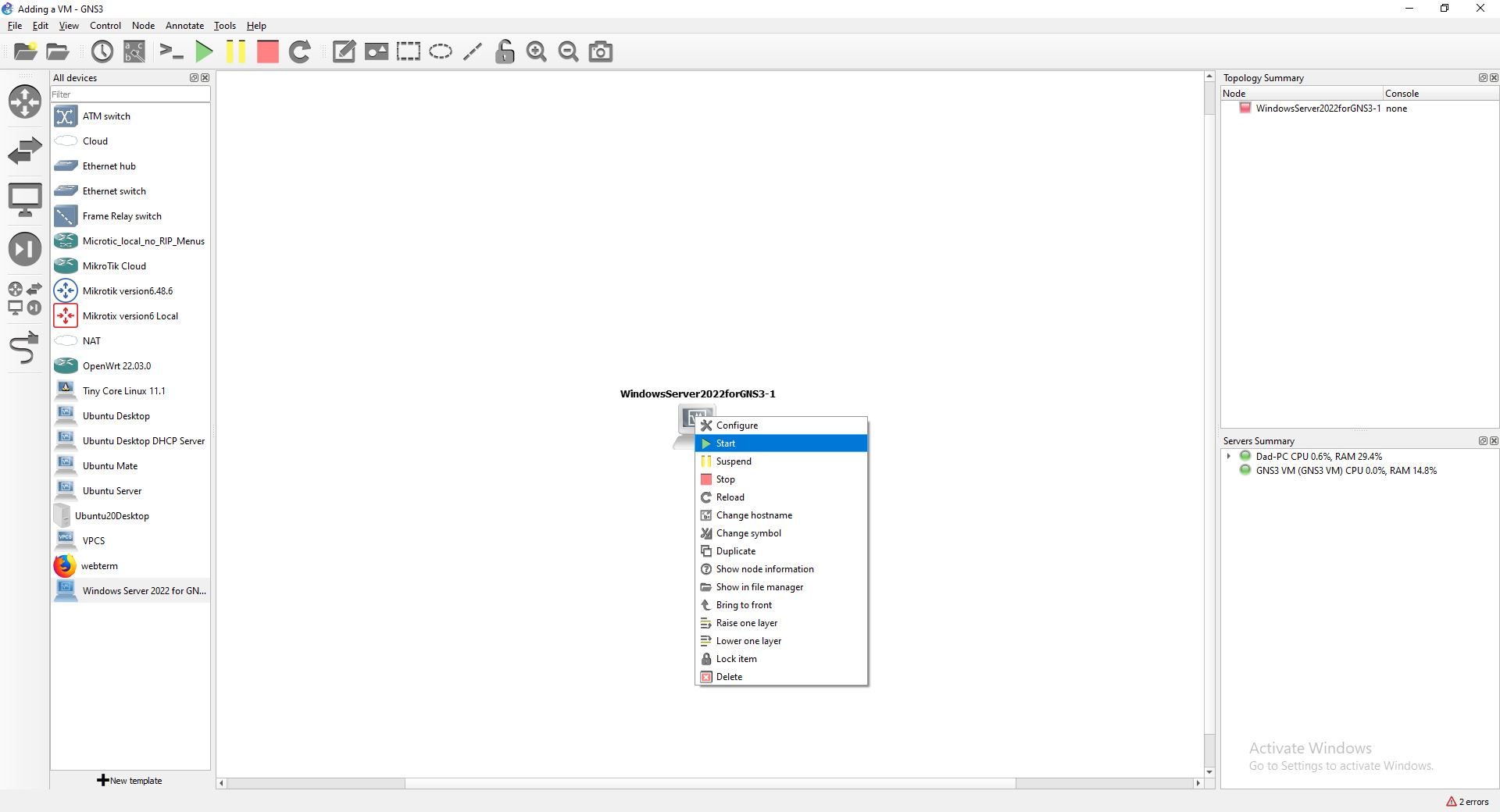6 Adding a Virtual Machine to GNS3
Mathew J. Heath Van Horn, PhD
GNS3 is unique from other simulators such as Cisco’s Packet Tracer. With GNS3, you can add any VM you create in VirtualBox and use it within the GNS3 environment. The purpose of this lab is to give you experience in creating GNS3 appliances using VMs
Learning Objectives
- Create GNS3 appliances using VirtualBox VMs
Prerequisites
- Oracle VirtualBox installed with at least one functional VM
- Chapter 2 – Setting up a GNS3 environment
Deliverables
- None – this is a preparatory lab for other labs
Resources
- GNS3 Documentation – https://docs.gns3.com/docs/
Contributors and testers
- Jacob M. Christensen, C.I.S. Student, ERAU-Prescott
- Cody Shinkyu Park, Honeywell Software Engineer, ERAU-Prescott Alumni
- Evan Paddock, Cybersecurity Student, ERAU-Prescott
- Dante Rocca, Cybersecurity Student, ERAU-Prescott
- Sawyer Hansen, Cybersecurity Student, ERAU-Prescott
Phase I – All the steps required
This is pretty straightforward. In this lab, we are using Windows server VM as the example, but any VM in VirtualBox can be used.
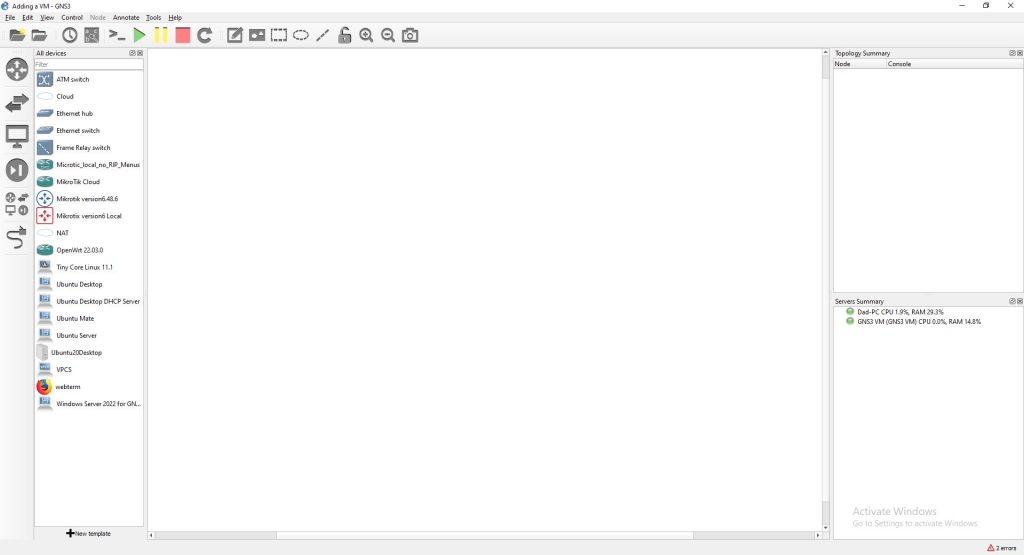
- Open Virtual Box and choose a VM you want to import into GNS3
- Start GNS3
- Create a new lab
- On the GNS3 menu, navigate to Edit and then Preferences (Figure 1)
- Select VirtualBox VMs and you will see the VirtualBox VMs already added to GNS3
- Select new at the bottom of the window (Figure 2)
- Make sure the radio button for running the VM on my local computer is selected and click on Next (Figure 3)
- You will now see a window with a drop-down box to select any of the VMs that are loaded in VirtualBox; in this example, we will select Windows Server 2022 for GNS3 (Figure 4)
- Click Finish
- To edit the properties of the VM, click edit on the bottom left of the window
- Here you can change things such as the default symbol, device name, RAM, etc
- In the Network tab, make sure to check the Allow GNS3 to use any configured VirtualBox adapter option box
- When you are finished, make sure you click Apply or risk the VM not being added
- Click OK
- Click on the all devices button and you can now see our VM added to the appliance list (Figure 5)
- You can drag the recently added VM to the GNS3 Workspace and start it (Figure 6)
- When the VM starts it will run outside of GNS3, so look for it on your toolbar as a VM (Figure 7)
- That’s it. Remember you can do this for any functional VM in VirtualBox. However, VMs use much more resources than the emulated devices within GNS3. So if you add 10, Windows 11 VMs, you will overload your host machine’s processor pretty fast
End of Lab
List of Figures
